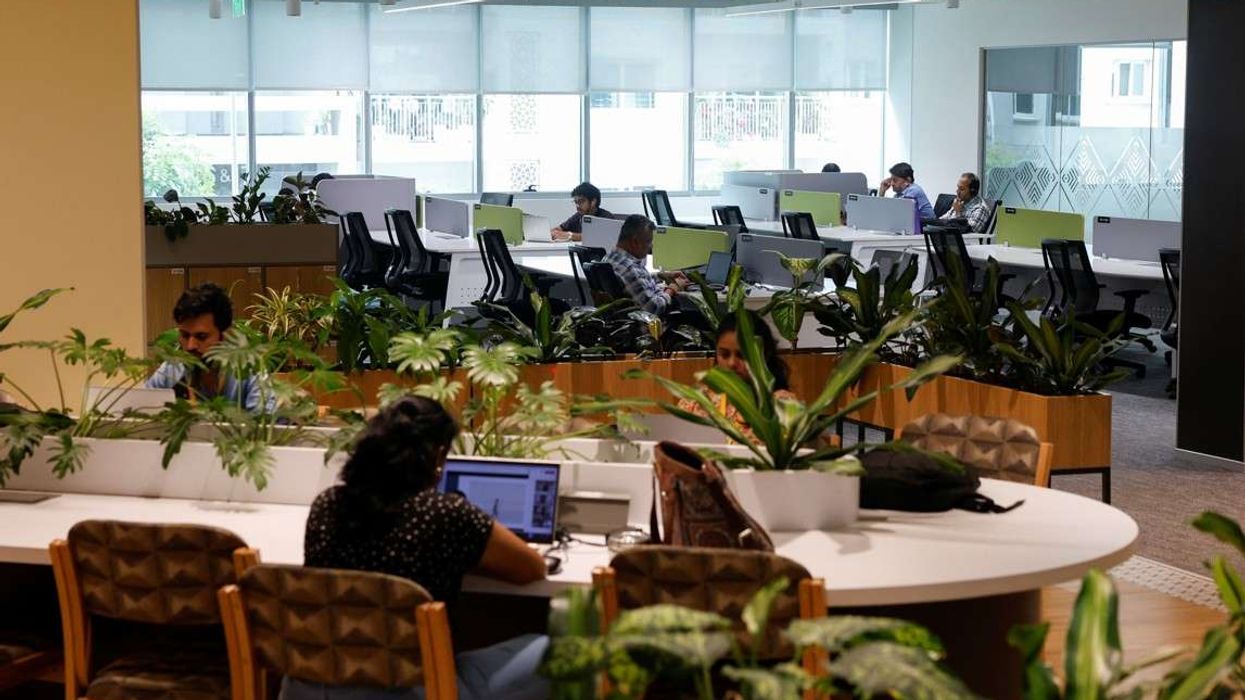US PRESIDENT Donald Trump’s decision to sharply increase H-1B visa application costs is expected to accelerate American companies’ move to shift more high-value work to India. Economists and industry experts say this will further boost the growth of global capability centres (GCCs), which manage operations ranging from finance to research and development.
India hosts about 1,700 GCCs, more than half of the global total. These centres, which began with a focus on tech support, have expanded into innovation-driven work, including car dashboard design and drug discovery.
Analysts say growing use of artificial intelligence and tightening visa rules are leading US companies to reassess labour strategies, with India-based GCCs emerging as key hubs combining global expertise with local leadership.
“GCCs are uniquely positioned for this moment. They serve as a ready in-house engine,” said Rohan Lobo, partner and GCC industry leader at Deloitte India. He said he was aware of several US firms currently reassessing workforce plans. “Plans are already underway,” he added, citing increased activity in financial services and technology, especially among firms connected to US federal contracts.
Lobo said he expected GCCs to “take on more strategic, innovation-led mandates” going forward.
Earlier this month, Trump raised the cost of new H-1B visa applications to $100,000, up from the earlier range of $2,000 to $5,000. The increase adds pressure on US companies that rely on skilled foreign workers to fill critical roles.
On Monday, US senators reintroduced a bill seeking tighter rules on H-1B and L-1 visa programmes, aimed at closing what they described as loopholes and misuse by major employers.
Industry experts say that if visa restrictions remain in place, US firms are likely to shift advanced work in artificial intelligence, product development, cybersecurity and analytics to their GCCs in India, while retaining more strategic functions in-house rather than outsourcing.
Lalit Ahuja, founder and CEO of ANSR, which has helped companies such as FedEx, Bristol-Myers Squibb, Target and Lowe’s set up GCCs, said, “There is a sense of urgency.”
Reassessing India strategies
Ramkumar Ramamoorthy, former managing director of Cognizant India, said the trend could even lead to “extreme offshoring” in some cases. He pointed out that the Covid-19 pandemic had already shown that critical technology work could be done remotely.
US government data shows that Amazon, Microsoft, Apple, Alphabet (Google’s parent), JPMorgan Chase and Walmart were among the biggest sponsors of H-1B visas. All of them have significant operations in India but declined to comment, given the political sensitivity of the issue.
“Either more roles will move to India, or corporations will near-shore them to Mexico or Colombia. Canada could also take advantage,” said the India head of a retail GCC.
Even before the latest visa fee hike and plans for a new selection process favouring higher-paid roles, India was projected to host the GCCs of more than 2,200 companies by 2030, with the market size nearing $100 billion. “This whole ‘gold rush’ will only get accelerated,” Ahuja said.
Implications for India
Some remain cautious, noting the risks of new legislation. If the proposed HIRE Act is passed, US companies could face a 25 per cent tax on outsourcing work overseas, a move that could disrupt India’s services exports.
“For now, we are observing and studying, and being ready for outcomes,” said the India head of a US drugmaker’s GCC.
Trade tensions between the two countries have extended into services, with visa curbs and the HIRE Act proposal threatening India’s cost advantage and cross-border service flows.
India’s $283 billion IT industry, which contributes nearly 8 per cent of GDP, may come under pressure. However, rising demand for GCC services could offset part of the impact.
“Lost revenues from H-1B visa reliant businesses could be somewhat supplanted by higher services exports through GCCs, as US-based firms look to bypass immigration restrictions to outsource talent,” Nomura analysts said in a research note last week.
(With inputs from Reuters)





